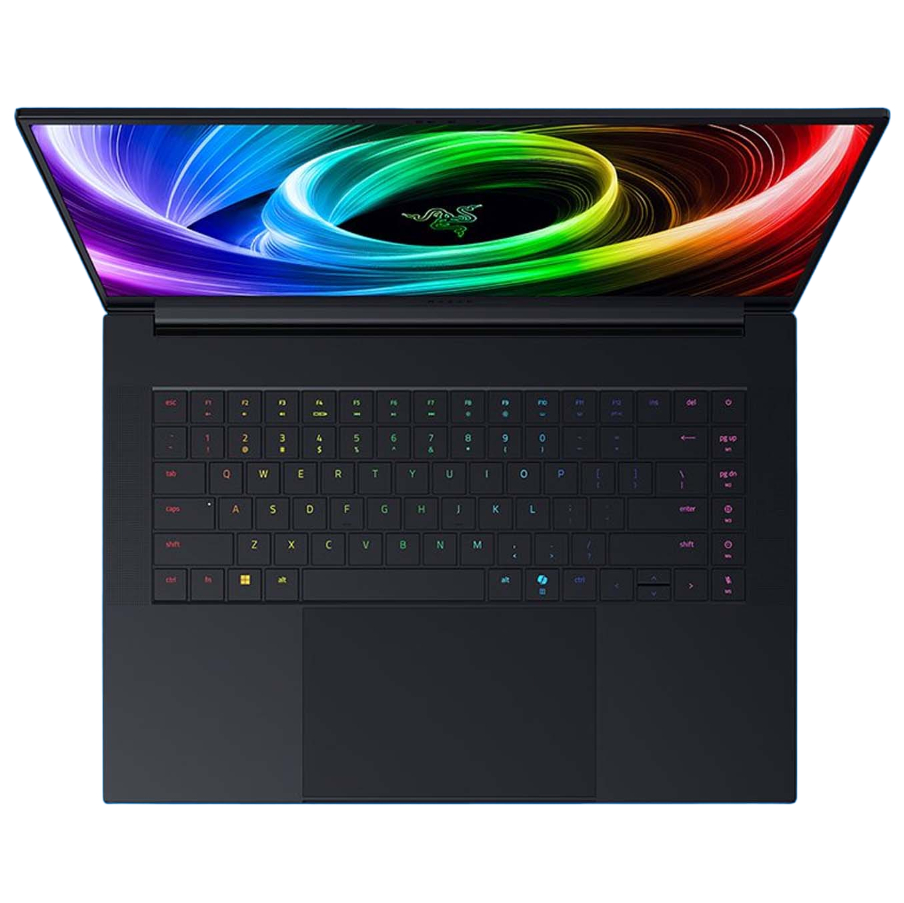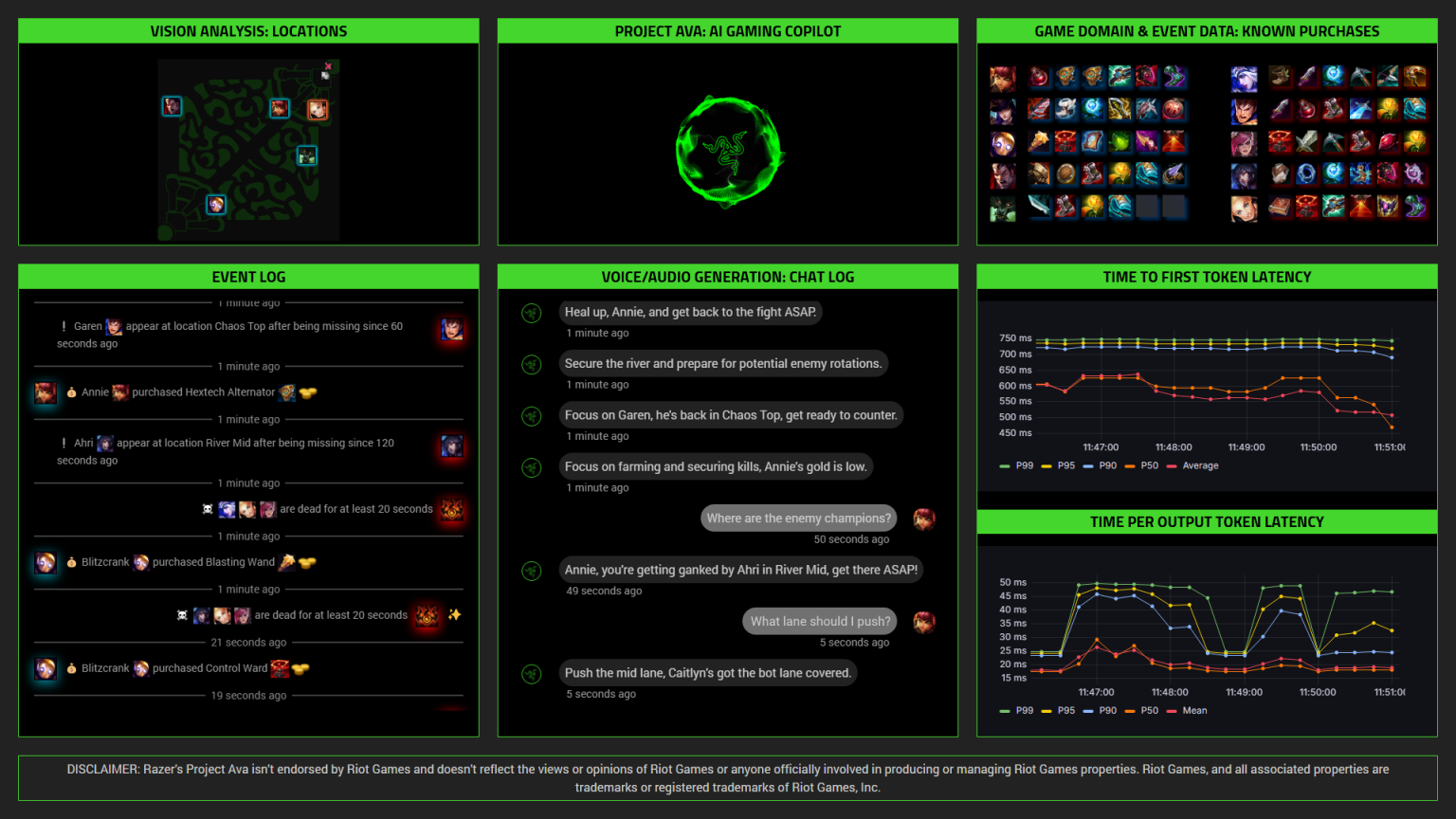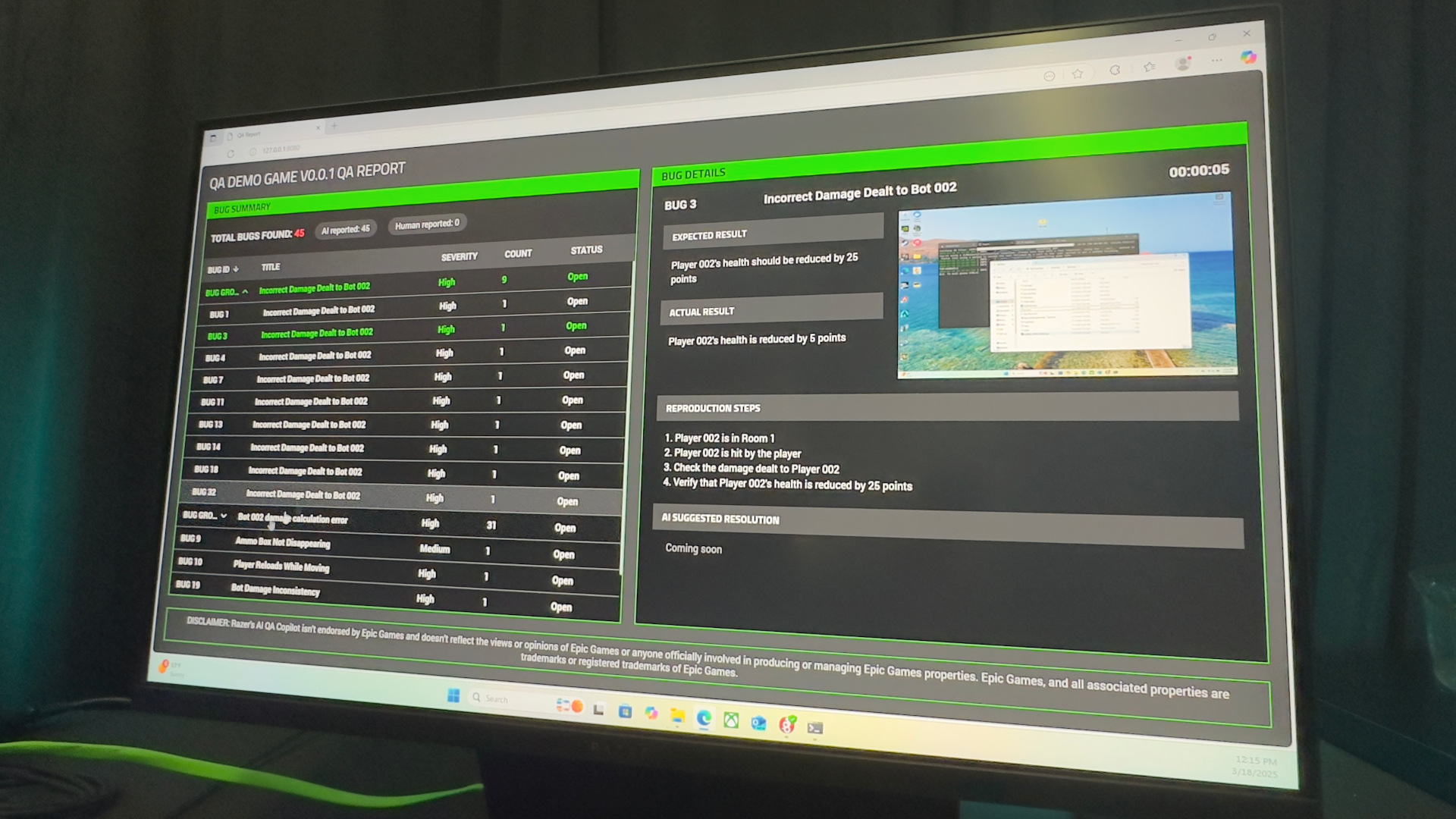Razer is the latest gaming brand to jump on the 'AI gaming' bandwagon as it opens up the 'first of three global AI hubs'
AI gaming is a pretty broad term.

Keep up to date with the most important stories and the best deals, as picked by the PC Gamer team.
You are now subscribed
Your newsletter sign-up was successful
Want to add more newsletters?

Every Friday
GamesRadar+
Your weekly update on everything you could ever want to know about the games you already love, games we know you're going to love in the near future, and tales from the communities that surround them.

Every Thursday
GTA 6 O'clock
Our special GTA 6 newsletter, with breaking news, insider info, and rumor analysis from the award-winning GTA 6 O'clock experts.

Every Friday
Knowledge
From the creators of Edge: A weekly videogame industry newsletter with analysis from expert writers, guidance from professionals, and insight into what's on the horizon.

Every Thursday
The Setup
Hardware nerds unite, sign up to our free tech newsletter for a weekly digest of the hottest new tech, the latest gadgets on the test bench, and much more.

Every Wednesday
Switch 2 Spotlight
Sign up to our new Switch 2 newsletter, where we bring you the latest talking points on Nintendo's new console each week, bring you up to date on the news, and recommend what games to play.

Every Saturday
The Watchlist
Subscribe for a weekly digest of the movie and TV news that matters, direct to your inbox. From first-look trailers, interviews, reviews and explainers, we've got you covered.

Once a month
SFX
Get sneak previews, exclusive competitions and details of special events each month!
Razer, the 'lifestyle brand for gamers' (don't ask), has announced it is further committing to AI with the first of three AI hubs opening up around the world. First it's Singapore, then Europe and the US.
Announced on August 4, Razer's Singapore-based AI hub is live, with the green-tinted tech company set to hire 150 AI engineering roles. Chief strategy officer of Razer, Li-Meng Lee, says, “Our goal is to empower game developers with the tools that deliver more immersive, intelligent, and efficient gaming experiences at scale.”
In the blog post announcing this update, it states that the games industry is projected to reach almost $400 billion in 2033 and 'AI gaming alone' is estimated to net $28 billion. To dig into what exactly is meant by 'AI gaming', the stats cited are from Market US, and account for 'Game Development and Design', 'Gameplay Optimisation' and 'other'.
If these stats prove to be accurate, AI-based gameplay design tools will account for over a third of the market, with optimisation taking up a little less and others taking up less than that.
Each hub will reportedly have main focuses. The Singapore hub will "serve as a cornerstone of Razer’s efforts to develop next-generation AI gaming technologies." It goes on to say this will strengthen its "position as an AI innovation hub for the region." Singapore is effectively a base of operations for AI development until the other two hubs come online.
The European hub will tackle WYVRN, "a comprehensive ecosystem for game development excellence." WYVRN is a group of Razer AI tools, Sensa HD haptics, Chrome RGB, and THX Spatial Audio. The AI tools specifically are the most interesting here.
On the gamer side, it will reportedly be used to give game guide advice to players, as well as giving language support, "Elite Esports Coaching", and hardware optimisations. I recently tested out Nvidia tools in ver 0.1 that promise similar things (though I wouldn't recommend it yet).
Keep up to date with the most important stories and the best deals, as picked by the PC Gamer team.
From context, it seems like this European development will be in the ecosystem around those tools, not those specific tools, as the Singapore hub is also working on Razer's AI implementation.
The US hub, like the European one, will reportedly "build on the foundation established in Singapore, focusing on regional innovation and talent development."
However, these AI tools aren't only intended for gamers. It has a QA Copilot function that can do bug detection and report generation for game devs to iron out bugs. I suspect this wouldn't entirely replace QA, as some bugs are less obvious to spot, but I do see the appeal of a tool like this catching more obvious problems en masse.
Given that Nvidia's gaming assistant has already launched and Microsoft's Copilot Gaming beta has already gone live, Razer does seem a little late to the party here. Setting up a hub and hiring 150 people is certainly not a bad way to start the catch-up process, but Meta has literally started housing data centers in tents to keep up with the competition, so it will need to do quite a lot to make up for lost time.
Of course, Razer isn't attempting to build LLMs like these tech giants, so it's not quite the same as OpenAI, but Nvidia does seem to be going in a similar direction with its AI, and will likely be fierce competition.
Razer's cited stats may project $28 billion in AI gaming by 2033, but even if these prove to be accurate, it has to hope Google, Microsoft, Nvidia, AMD, and a whole host of others haven't hoovered up all that revenue before Razer gets there.

👉Check out our list of guides👈
1. Best gaming laptop: Razer Blade 16
2. Best gaming PC: HP Omen 35L
3. Best handheld gaming PC: Lenovo Legion Go S SteamOS ed.
4. Best mini PC: Minisforum AtomMan G7 PT
5. Best VR headset: Meta Quest 3

James is a more recent PC gaming convert, often admiring graphics cards, cases, and motherboards from afar. It was not until 2019, after just finishing a degree in law and media, that they decided to throw out the last few years of education, build their PC, and start writing about gaming instead. In that time, he has covered the latest doodads, contraptions, and gismos, and loved every second of it. Hey, it’s better than writing case briefs.
You must confirm your public display name before commenting
Please logout and then login again, you will then be prompted to enter your display name.



